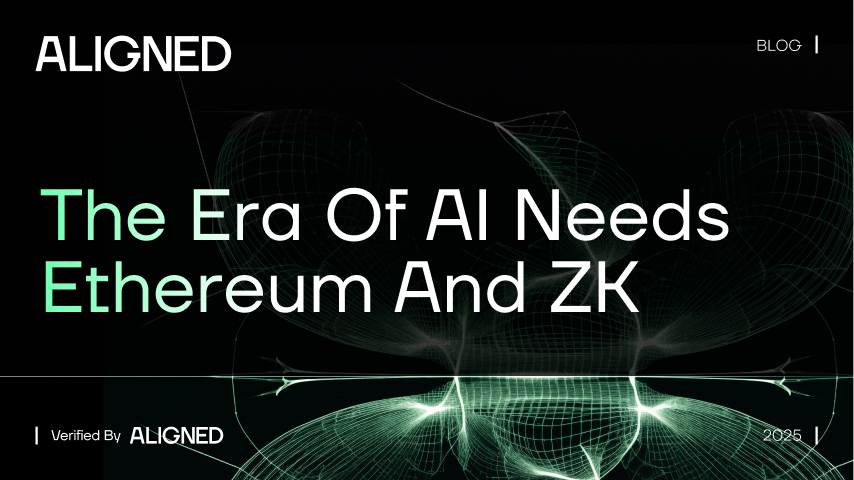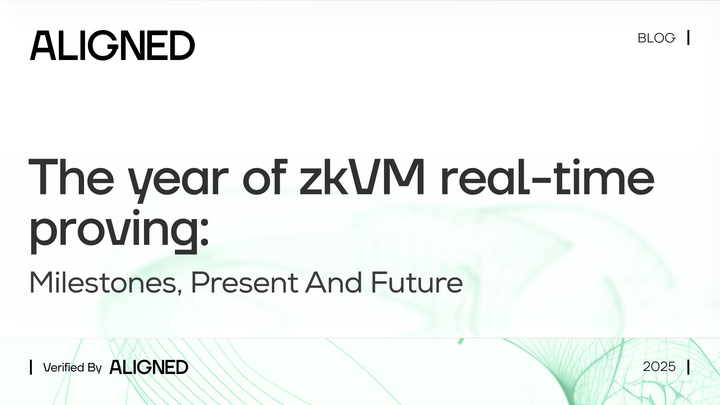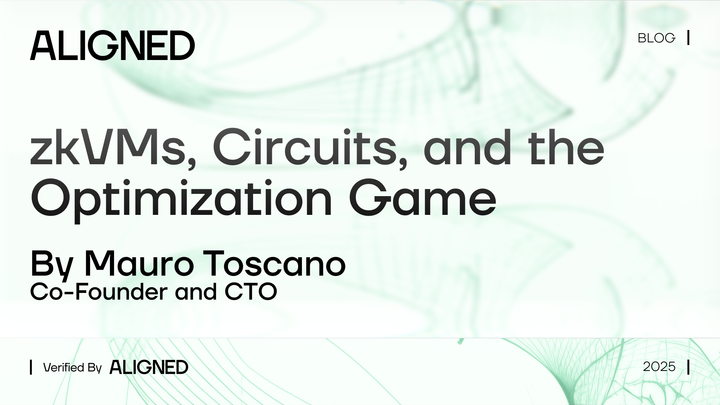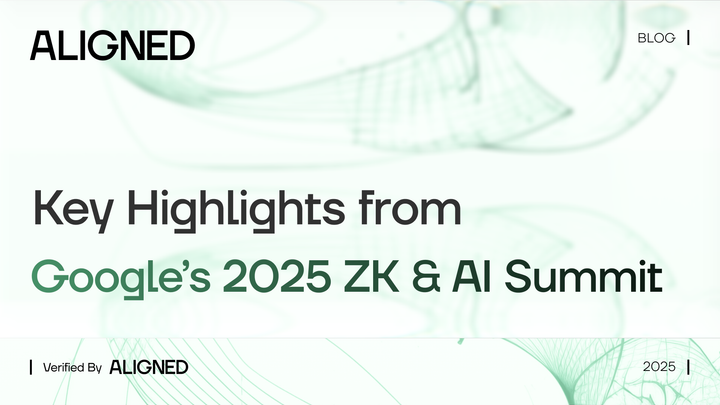The era of AI needs Ethereum and ZK

The era of AI needs Ethereum and ZKAligned is a vertically integrated stack for building on a verifiable internet. Whether it’s financial infrastructure or AI systems, we ship one‑click rails for wallets, rollups, interoperability, and zero‑knowledge (ZK) services.
The thesis? As AI picks up more of our cognitive and economic workload, three things stop being optional: verifiable models, abundant proving, and transactional agents. ZK + Ethereum provides the primitives. Aligned turns them into products developers can actually use.
The Accelerating Impact of AI (and the Expanding Trust Gap)
Millions already lean on AI for real decisions: drafting contracts, screening candidates, steering capital, mediating relationships. The curve is still steepening. As we hand off judgment to machines, the core question shifts from “Can the model do it?” to “Can I prove what it did and that no one meddled with the process?”
Deepfakes, prompt injection, model drift, silent fine‑tunes, opaque server‑side patches: plenty of ways things can go sideways. To trust AI in high‑stakes contexts, we need to prove what ran and anchor that proof somewhere no one controls. That’s where zero‑knowledge proofs and Ethereum come in.
ZK Proves Computation. Ethereum Coordinates It.
Zero‑knowledge proofs are cryptographic protocols that let a prover convince a verifier that a statement about data or computation is correct without revealing the underlying data or forcing the verifier to re‑run the computation (for example, proving a model ran with specific weights on a given input and produced a stated output).
Ethereum is where those attestations can live: immutably and permissionlessly. It’s the most secure programmable settlement layer in the world; a neutral place to anchor proofs, escrow value, and coordinate systems that don’t trust each other by default. It's where we believe the highest-value, trustless applications of the future will live.
Together, they form the backbone of a world where you can trust outcomes without trusting actors.
Where AI and Crypto Actually Meet
Crypto and AI are fast-moving fields, but three intersections are already clear to us. Our stack will give builders production‑ready answers to each, so you don’t have to reinvent verification, proving supply, or agent payments.
Verifiable Models and Identity
As models graduate from copilots to autonomous actors, you can’t assume they ran the right weights on the right inputs. You need to prove it without dumping private data or re‑running computationally-intensive workloads. Aligned’s ZK verification layer gives Ethereum the throughput to check these proofs at scale. We aggregate and verify on‑chain so builders aren’t at the mercy of gas fees and latency spikes, while still using the most secure, credibly neutral, censorship‑resistant venue for verification.This isn’t just theoretical; the work has started.
Giza is building LuminAIR, a zkML framework for proving machine learning model execution; we hosted them on our Aligned Guests stream to dig into how ZK proofs wrap around real ML workflows. We even saw a verifiable nearest‑neighbour search project emerge from the Aligned Builders hackathon, showing that core ML primitives like retrieval can be proven and settled on-chain.
In a world where humans and AI models interact, we also need solutions for verifying human identities. Projects like Sovra, World, and Rarimo are enabling verifiable claims (proof of personhood, verifiable digital credentials and IDs) that use ZK for cryptographic guarantees. In particular, we have partnered with Sovra to provide digital identity infrastructure for millions of citizens in Latin America to interact with their governments and institutions while preserving privacy.
The common thread: if an agent or application is going to act on model outputs—or on human claims tied to those outputs—we need proofs that the rest of the world can independently check.
Proving Supply
Verifiable AI creates a new kind of compute demand: generating the proofs themselves. AI demand is going up. If models are going to be verifiable, those proofs have to be produced. Our meta‑proving service gives protocols, builders, and users a single API to tap multiple specialized provers, batch and aggregate results, and return a succinct proof ready for on‑chain verification.
Economically Capable Agents
Agents that can’t hold assets, sign commitments, or pay for services will hit a ceiling. To participate in real economies they need identity, wallets, and programmable money. We provide the wallet and rollup rails—key management, auth layers, multisig/threshold schemes, settlement and escrow on Ethereum—so agents (and the humans behind them) can coordinate, arbitrate, and transact on credible infrastructure.
TL;DR: verify the model, outsource the proving, let the agents pay. We aim to cover the stack end to end.
Conclusion
Two things we’re confident about:
- ZK will keep getting faster.
- AI demand will keep growing.
If models are going to touch money, safety, or law, their execution has to be provable—and those proofs need to settle on an impartial ledger. We also need ways to verify human identities without sacrificing privacy. The primitives needed to solve this already exist: ZK supplies the proofs; Ethereum supplies finality. We've made it our mission to make accessing this technology easier.
We started with proof verification on Ethereum because that was the obvious bottleneck. Solving it exposed the next ones: affordable proving capacity, Ethereum‑anchored execution environments, and wallet/identity rails for agents. Hence: meta‑proving, Rollups‑as‑a‑Service (RaaS), wallets, and interoperability tooling. Same thesis, broader surface area.
We’re building infrastructure for autonomous software to transact and coordinate safely with people and with each other: cryptographic guarantees, programmable value, neutral coordination.
If that’s on your roadmap, let’s talk.
Stay tuned: 🐦 Twitter | 🗨️ Telegram | 👾 Discord | 🌐 Website | 📝 Manifesto



